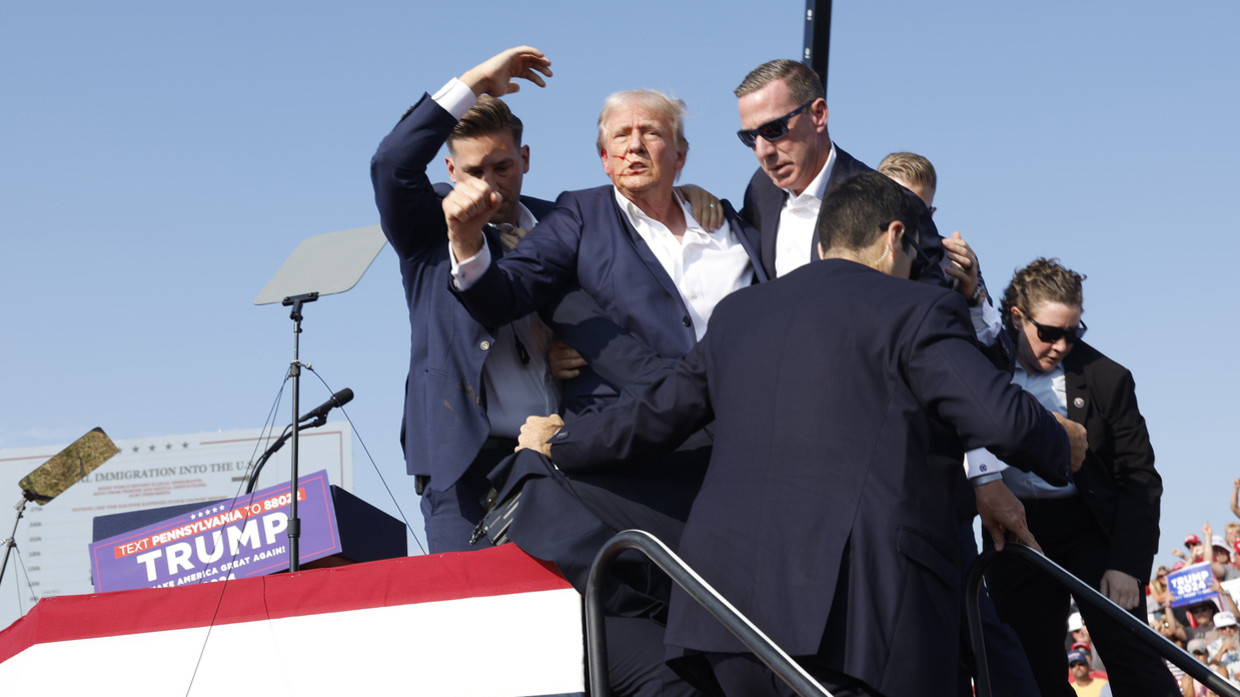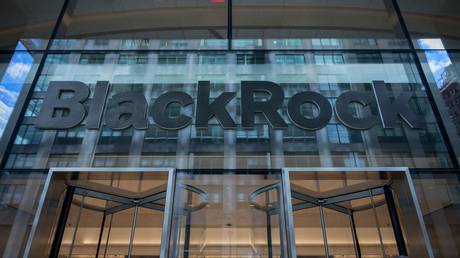A Texas-based investment company has denied trying to short twelve million shares of Trump Media & Technology Group just before the failed assassination attempt on the US presidential candidate, claiming it was a clerical error.
Short selling involves borrowing a security whose price the borrower thinks is going to fall and then selling it on the open market. One then buys the same stock back later, hopefully for a lower price than it was initially sold for, returns the borrowed stock to the broker, and pockets the difference.
Trump was speaking at a rally in Butler, Pennsylvania on Saturday when an assassin fired several shots at his head, nicking his ear, killing one audience member and injuring two more.
The day before, a company called Austin Private Wealth LLC made a filing with the US Securities and Exchange Commission (SEC) for a put option on 12 million shares of $DJT. To outside observers, this looked like a bet that the company’s value would go down drastically – as it would if Trump had been killed.
One sleuth on X (formerly Twitter) even got screenshots from a Bloomberg terminal showing the company’s put option, which then disappeared later in the day.
Others pointed out that Austin had major holdings in Vanguard and BlackRock funds, claiming that they had links with George Soros and the Rothschild family as well.
The apparent BlackRock connection fueled suspicions further, as the alleged shooter had once appeared in a commercial for the investment behemoth. BlackRock yanked the ad after the attempted assassination, which they denounced as “abhorrent” and “awful.”
On Wednesday, APW posted a statement on the front page of their website, seeking to dismiss the rumors.
“The SEC filing which showed that Austin Private Wealth shorted a large number of shares of Trump Media & Technology Group Corp (DJT) was incorrect and we immediately amended it as soon as we learned of the error,” the company said.
APW holds 12 contracts, or 1,200 shares, not twelve million “as was filed in error,” the statement said, blaming a “third party vendor” for multiplying all options contracts by 10,000. The report was filed on July 12 to reflect the company’s June 28 position, but was amended on July 16, when APW became aware of the problem.
“We deeply regret this error and the concern it has caused, especially at such a fraught moment for our nation,” the company said, adding that it is “reviewing our internal procedures” to understand how it happened.
Anyone who shorted the DJT stock came to regret it. On the first day of trading after the Butler shooting, its price jumped from $31.25 to $46.17 a share, before stabilizing at just above $37.


